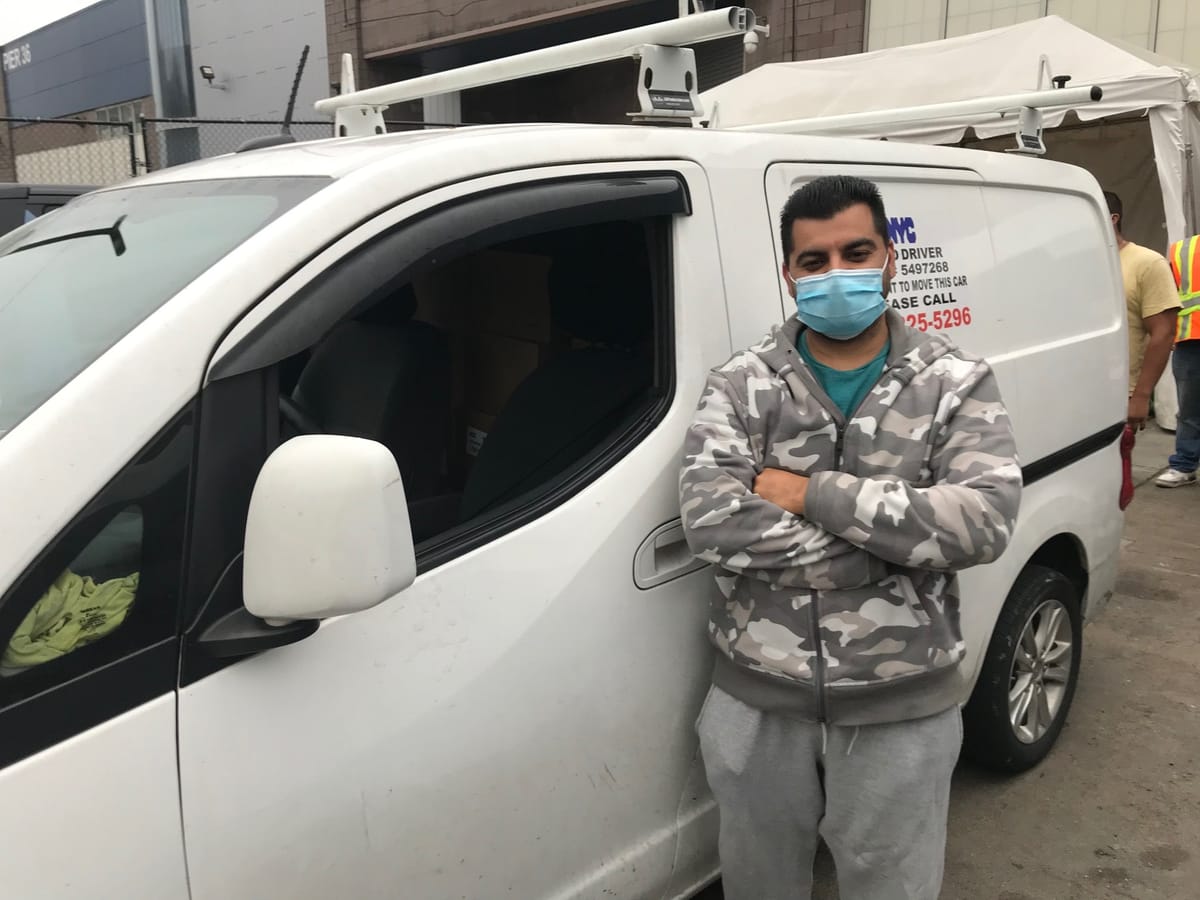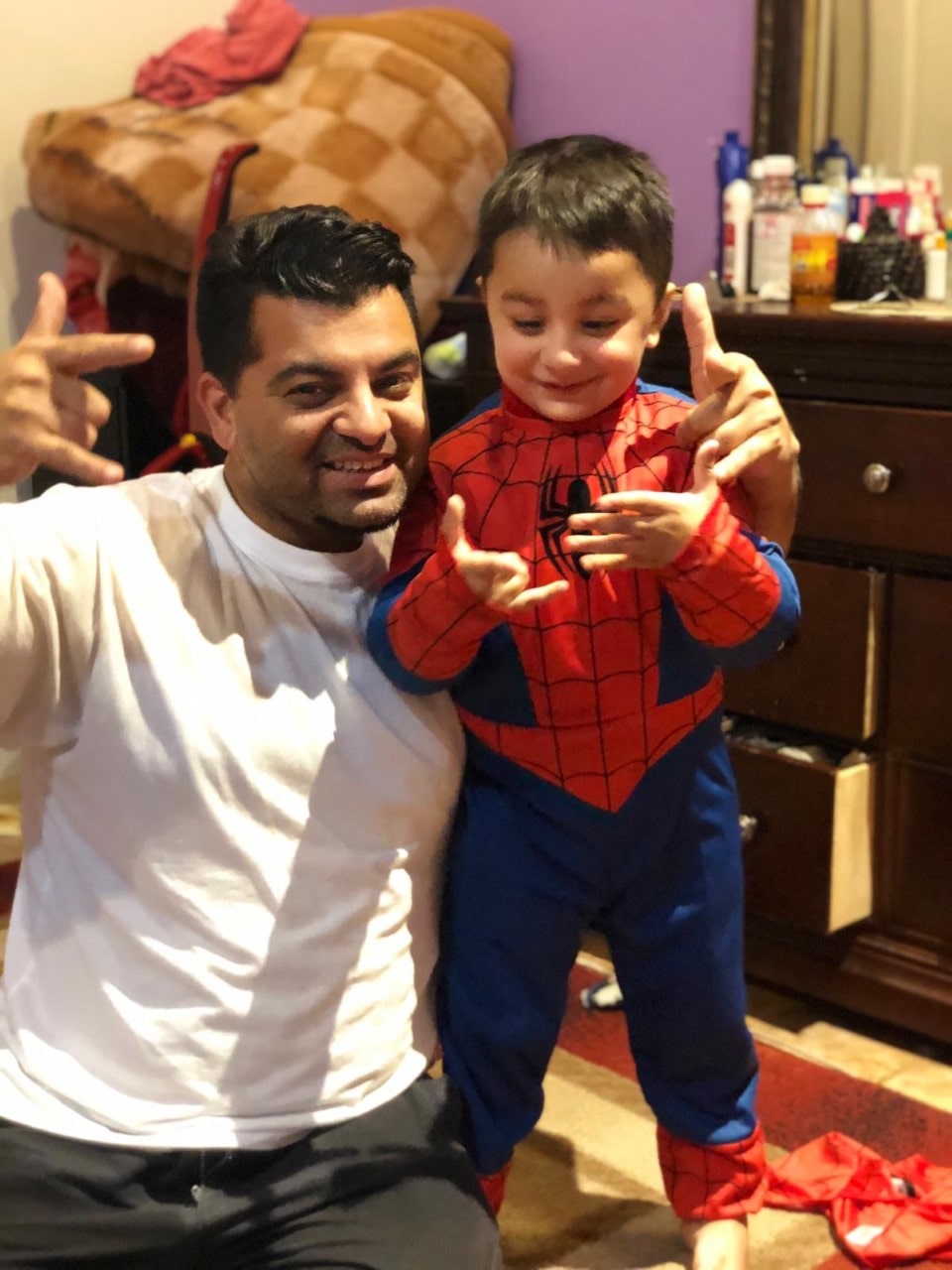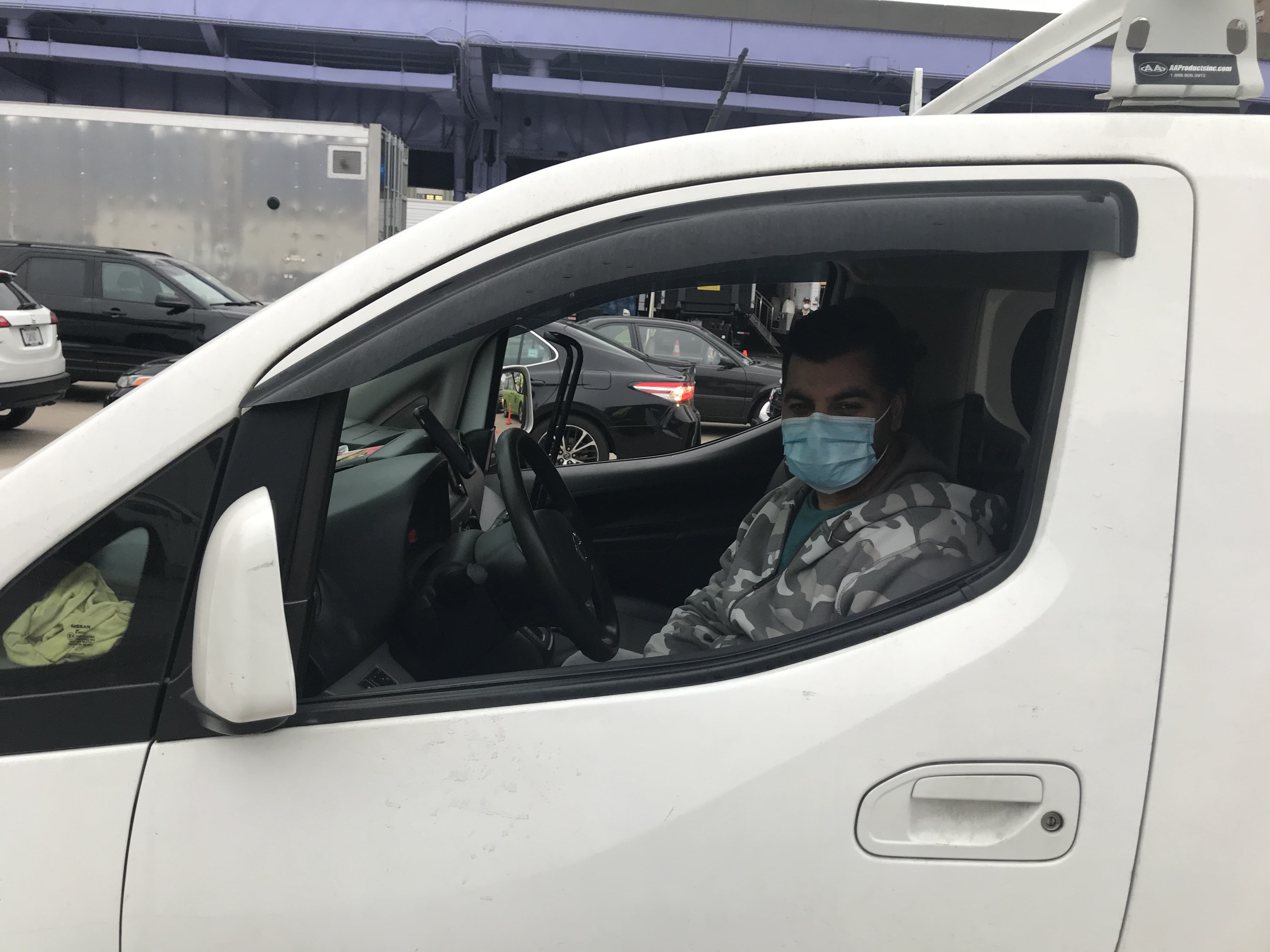Syed Bukhari, A Midwood Cabbie, Delivered 40,000 Meals During Pandemic


MIDWOOD – Last year, Syed Bukhari, 37, got tired of driving a cab, something he had been doing for the last 15 years. The pay isn’t good, there are no benefits, and the business was declining. So, he applied for work at the MTA, but then the pandemic hit. Bukhari was afraid, and like the majority of people, he stayed at home with his family. But that would only last a few days.
The Taxi and Limousine Commission (TLC) emailed their drivers about a delivery opportunity. As part of the TLC Emergency Food Delivery Program, interested drivers would deliver boxes of food to the vulnerable population and would get compensated. Bukhari read the email and immediately began asking his friends for advice. They told him it was a risky job, as he’d be delivering to people who could be sick. They told him to stay put and apply for unemployment. His wife also told him not to do it. She told him he did not have to be a hero. But being a hero isn’t what Bukhari was going for. Bukhari believed that by staying at home, he’d be selfish.
“I don’t want to be selfish. This country has given me more than I need, and right now, they need help. What if the doctors and nurses think this way? They also have families. What if they stayed at home? Who’s going to treat the patients?” Bukhari recalled to Bklyner what he told his wife. “If I die, then I die because I was meant to die this way. It was a risky job, but I had to do it.”
And for seven months, that is what he did. As part of the program, Bukhari performed over 780 routes and delivered about 40,000 meals during the height of the pandemic. And in total, TLC drivers delivered about 65 million.

Bukhari is a Pakistani-American man living in Midwood with his wife and four kids (three sons and one daughter). He is Muslim and acknowledged that it is because of his faith that he could go out and help the vulnerable population. “My religion tells me first to help, regardless of religion or race or color. Help others, and God will help you. It’s a simple rule. I fed a lot of people that needed food, and in return, God helped my family, too.”
During his time delivering meals, Bukhari met lots of different people. This one time, he went to deliver some boxes of food to a woman. He called her, letting her know to come downstairs to pick them up, as it was curbside delivery. The woman, who Bukhari said sounded old on the phone, told him that she could not come downstairs because the elevator was broken. She told him she had nothing to eat, but if he decided to leave, she would understand because she lives on the tenth floor and can’t expect him to carry boxes upstairs. Bukhari didn’t have to think twice. He hoisted the boxes on his shoulders and trekked up ten flights of stairs.
Another time he had to deliver to a building on 92nd Street and First Avenue in Manhattan. When he got to the building, he called the woman to pick up the groceries. She didn’t pick up the phone. He called several times and even left a message. He did not mind going to her apartment, but he’d need someone to open the building door for him to get inside. It just so happened that a man exited the building, and the door opened. Bukhari walked inside and took the elevator to the woman’s floor to give her the groceries. When he walked to her apartment, a message outside said, “Stop leaving food. She passed away.”

“My whole life has changed. Before the pandemic, we were all thinking no one was going to die, and we were strong enough. Now, God reminded us there’s another superpower and that no matter how good the medicine or doctors or hospital, when it is your time to die, then you’re going to die,” he said. “My job is a big responsibility. I’m providing food. I just wanted to make sure everyone got food. People pray for me. I delivered to Jewish communities, and they give me prayers. I don’t even speak Chinese, but when they say something to me in Chinese, I can understand that they are thanking me.”
This afternoon, Bukhari was honored by the TLC for delivering the most meals in the program, which has now ended.
“These individuals waited long hours in line at the food distribution sites, before spending their entire day delivering meals,” New York City Sheriff Joseph Fucito said at the virtual ceremony. “They demonstrated extreme bravery in facing continuously unknown danger and performed wonderful acts of humanity and kindness for those most in need. Thank you.”
Bukhari was not expecting to get this honor, as he explained to Bklyner that cab drivers are unrecognized workers.
“We can be a good tool for the city, but nobody recognizes us. Nobody appreciates us, to be honest with you. Everybody wants to use us and wants us to drive them safely to their home, but at the end of the day, nobody cares what we do,” he said. “We have no pension, no plans. The cars are not nice for us. The traffic police are not nice. You load and unload passengers, and cops don’t like us. If there is a USPS truck, they can park wherever they want. Nobody bothers them. But if we do that to unload and pick up passengers, we get yelled at and ticketed.”

He said the TLC does not appreciate cab drivers and all they have done for the city.
“I will be very happy if the city does something about retiring. We worked for so many years, sometimes 30 to 60, and there are no pension plans,” he said. “The city has to give us a break and let us park our cars and make some places where we can go outside to pray and use bathrooms. During these deliveries, do you know how much trouble I had just to use the bathrooms? Before all restaurants were open, we’d park at McDonald’s and quickly use them. But during the pandemic, it was difficult because all restaurants closed and nobody lets us use it.”
Bukhari explained that even when he’d load the grocery boxes, he was not allowed to use the bathroom.
“I won’t complain, but these things have been there for a long time. They need to be addressed. TLC drivers are not in a good position. Now that the program is done, I don’t have the weekly checks coming in. We can’t even afford to pay the lease for our cars. Before, even if you worked 15 hours, you could cover your expenses. Now, when you work 22 hours, you cannot cover your expenses,” he said.
“The problem is that nobody wants to hear from the driver’s side. That’s why the city is not taking action. I would love to pay to a union that can help me get some benefits. Why don’t we have medical benefits like other city employees? Whenever the city needs us, we are there—so many of us delivered food when we could have been at home—but when we need the city, it is not there for us.”



